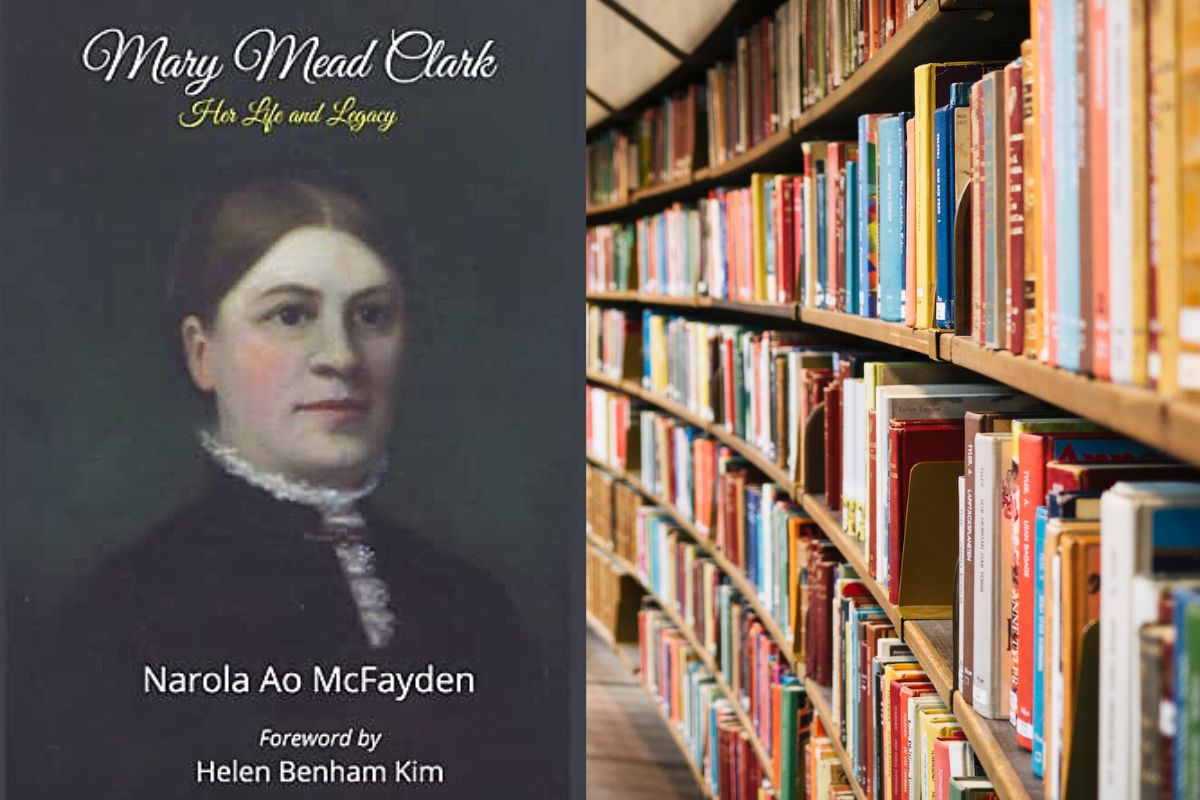
Mary Mead Clark: Her Life and Legacy by Narola Ao McFayden. Clark Theological College, Mokokchung, 2019, 158 pp.
Narola Ao McFayden, who had earlier written a book about the missionary family of Mary Mead Clark and her husband Edward Winter Clark, is back with another missionary biography.
In this volume, she focuses on the life and legacy of Mary Mead Clark, an American Baptist woman missionary in Nagaland, India.
In an accessible and engaging language, she not only invites the Ao Baptists to remember their beginnings but also sheds light on the world of the missionary in all its complexities.
In this book Mary Mead Clark: Her Life and Legacy, the reader would hear two voices, those of McFayden and Clark.
In Part 2, McFayden has carefully and faithfully presented the voice of Mary Mead Clark in her own words. By reproducing Clark’s journal entries dating back to 1869 until 1872 verbatim, McFayden has not only allowed space for Clark to speak herself but also subtly invited the reader to understand, appreciate, and interpret Clark’s initial encounters with Naga cultures for themselves.
These journal entries written primarily for the writer’s spiritual edification and emotional solace represent Clark’s initial impressions, often raw and unmediated, about the community she eventually loved and dedicated her life for.
They reveal the socio-political context and theological convictions of American Baptist missionaries of the era.
Typical of the woman missionaries of the period, Clark was in love with her vocation and the people she worked with and for, the latter letters attest.
Parts 1, 3, and 4 reveal McFayden’s voice. In Part 1, McFayden introduces the general context of the family and faith of Mary Mead Clark. She locates the upbringing of her protagonist in a little township in the state of New York and a Baptist church therein.
Part 3 assesses Clark’s contribution to the revitalization of Ao Naga culture, especially the spheres of missionary work, formal education, women’s solidarity, cultural change, and literature.
Clark not only helped the Nagas to put their languages in writing but had also documented and thereby preserved the ancient wisdom of Nagas in textbooks, McFayden argues.
Part 4 gives an account of Clark’s continued advocacy of the Naga cause after her retirement back in her hometown.
Chronologically arranged and narrated, this biography reveals the evangelical convictions of the missionary as well as the interpretative trajectories their stories evoke among the local Christians.
It provides the Ao Baptist communities a window into their beginnings and invites them to critically engage and appreciate their kinship with American Baptist missionaries.
Photo by Susan Q Yin on Unsplash









